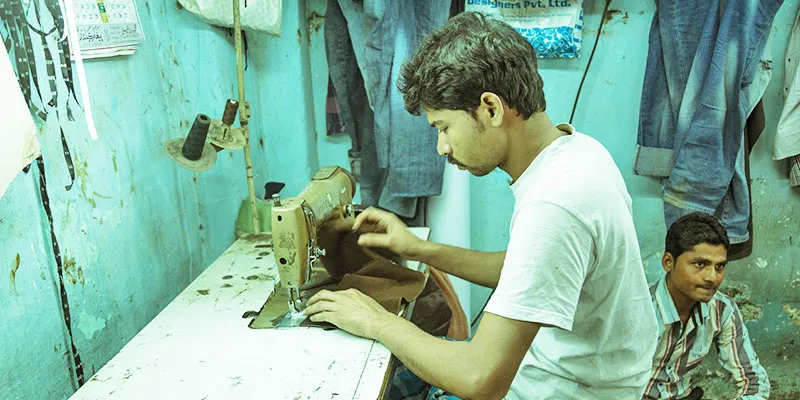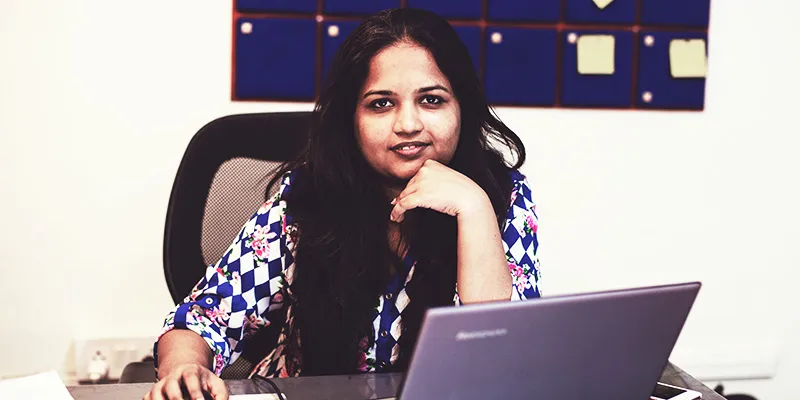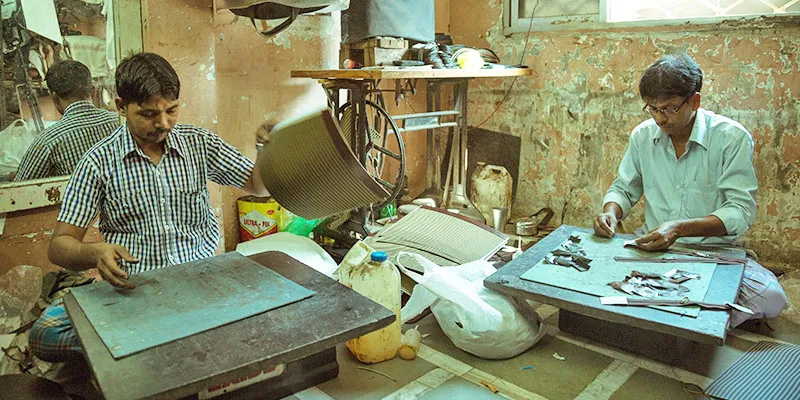Dharavimarket.com brings e-commerce to India’s largest slum
What’s Dharavimarket.com
Dharavi is known for being Mumbai’s biggest slum. But it’s also Mumbai’s largest informal special economic zone, the biggest melting pot of cultures and the biggest unstructured township in Mumbai. Clearly, Dharavi is a brand known for many things and Megha Gupta, the 29-year- old founder of Dharavimarket.com has set out to promote Dharavi in a way that benefits its myriad artisans both economically and socially. In its current form, Dharavimarket.com serves as a market place for leather product manufacturers, potters, shoe makers, jewelers and various accessory makers who want to sell their wares in the domestic and international markets. This for-profit initiative provides fair remuneration to the skilled craftsmen for their labour and expertise and makes available world-class quality goods at reasonable prices to its buyers. However, the reason behind the genesis of Dharavimarket.com goes beyond just e-commerce. It has its roots in affordable housing issues and livelihood and commute problems of people residing in the poor communities of Dharavi.

Conception
In early 2012 e-commerce was taking off in India and Megha had a brainwave about bringing the numerous artisans, craftsman and manufacturers of Dharavi into its fold.. She decided to start Dharavimarket.com for this purpose. However, a new venture would need funds and she didn’t have enough. For the next two years she worked as a freelance urbanologist to accumulate monies for her pet idea. “Lot of people in Dharavi don’t have computers but most of them have good smart phones,” Megha points out. She needed to invest not only in an e-commerce enabled platform but also in developing a mobile app that would allow craftsmen to upload images and other details of their products onto the platform. After much preparation and investing about Rs 5 lakhs, Megha launched Dharavimarket.com in August 2014.
Four months into its operations, Dharavimarket.com has about 104 registered craftsmen selling 962 SKUs across different product categories like bags, accessories, clay and pottery, shoes and apparel, customized products and even raw material. They use the mobile app developed by Megha to upload pictures of their products which she approves before they appear online for sale. Dharavimarket.com also offers clients the facility of ordering custom-made products.
Most of the craftsmen in Dharavi live and work in sub-optimal conditions in workshops that have severe paucity of space. In spite of this disadvantage, they are highly adept in their art and make good quality products. However, they always remained labourers with no direct access to domestic and international clientele. Intermediate agents buy products from them and sell them at high profits. “Dharavimarket.com aims at bridging this gap by using the power of e-commerce. It also intends to create an exhaustive database of every craftsman that will include photos of their workshop, information on how they make their products and their life stories,” says Megha. According to her this will not only allow potential customers a choice of artist but also provide craftsmen a window into market trends and consumer likes and dislikes.

Megha’s personal journey
Megha Gupta represents the new generation of independent, passionate and strong-minded women entrepreneurs. “This is about fulfilling a dream, it’s not work,” she says, talking about her initiative. Having started off as a journalist for Mid-Day after completing her Bachelor’s degree in mass media in 2006, Megha mostly reported on issues concerning infrastructure in Mumbai. She decided to study this subject in detail and went to the University of Sheffield, UK, for an MA in Town and Regional Planning. Megha knew she had to come back and apply her skills to the problems she witnessed during her days in journalism. After her return in early 2008, she worked with some of the best names in urban planning; assisting them in areas of research and publication of public infrastructure projects and affordable housing ideas. It was during this five- year stint as an urbanologist that Megha got involved in a project about the daily commute methods of people in Dharavi. For six months she spent 16 to 18 hours a day in Dharavi observing and understanding local manufacturing activities, lifestyle of the people, social networks and popular communication modes. “This is when I realized that there is so much activity in Dharavi,” she remarks.
Future plans
In the next two years, Megha is keen to implement the Social Capital Credits Program (SoCC) that aims at improving the quality of life for craftsmen. She has partnered with URBZ and Asia Initiatives for this. “If a craftsman keeps his workshop clean or reduces wastage in the making process he will get some social points. These points can be redeemed by him at a later date to get his workshop painted.” This program offers a social credits menu that has different credits for different tasks like sending daughters to school, mentoring younger craftsmen etc. Craftsmen who get registered on Dharavimarket.com will automatically be registered for the SoCC. Megha’s goal is to bring as many craftsmen as possible in the ambit of this program.

Megha has set herself a target of registering 500 craftsmen with Dharavimarket.com in the first year of operations with a strong focus on apparel - shirts and jeans; and bags and shoes categories taking precedence. “I intend to participate in both national and international trades and fairs to promote products from Dharavi,” she says. She is also keen to reach out to wholesalers from US and Russia to expand her business.
From being an e-commerce website that it is now, Dharavimarket.com has the larger vision of evolving into a robust platform for voicing multiple issues that are intimate to the slum dwellers like affordable housing, right to livelihood, access to basic amenities and right to their own way of life. It is for these reasons that Megha Gupta can be called the ambassador of Dharavi.
Image credit-Rohan Potdar







